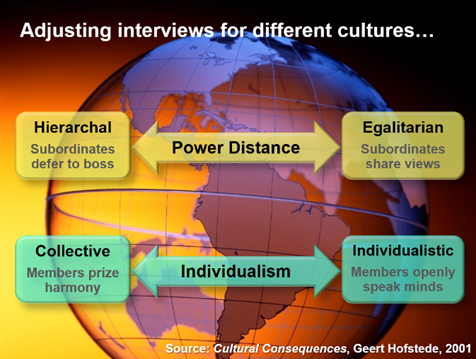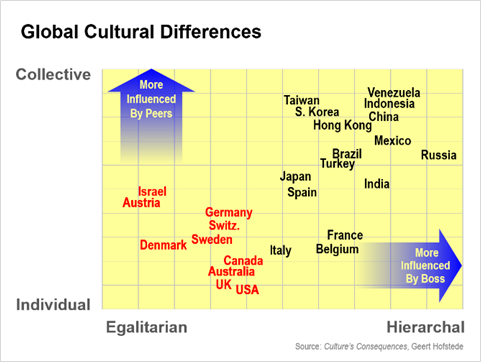1. Understanding cultural differences
The underlying reasons why you'll need to modify your interviews in some countries.
There are many ways to understand cultural differences, but for the purpose of conducting customer interviews, two are especially important:
Power distance: In hierarchal cultures, subordinates defer to the boss, usually waiting for him or her speak first. In egalitarian cultures, all viewpoints are considered equally valuable, and subordinates will speak up without waiting for the boss.
Individualism: In collective cultures, members prize harmony… so it’s rare that they will publicly disagree with another (causing them to “lose face.”) In individualistic cultures, members will openly share their views, even if it means contradicting another person.

After extensively researching global cultures, Geert Hofstede assigned values to many countries for power distance and individualism… as shown in the chart below. As you move up on this chart, people are more influenced by their peers. And as you move to the right, they are more influenced by their boss.

Rather than try to remember the position of each country consider these generalizations:
- Someone raised in Western Europe—or a country colonized by Western Europe—is likely to be comfortable with a more individualistic and egalitarian culture.
- Blueprinting interviews have an intrinsic individualist and egalitarian nature to them: We’re seeking to get everyone’s honest, unfiltered thinking, and not particularly worried about pleasing the boss or avoiding differences of opinion.
- This means some adjustments will likely be needed for interviews you conduct in collective and hierarchal cultures, e.g. Asia.
Keywords: culture, cultural difference, power distance, individualism, collective, egalitarian, hierarchal, global cultures